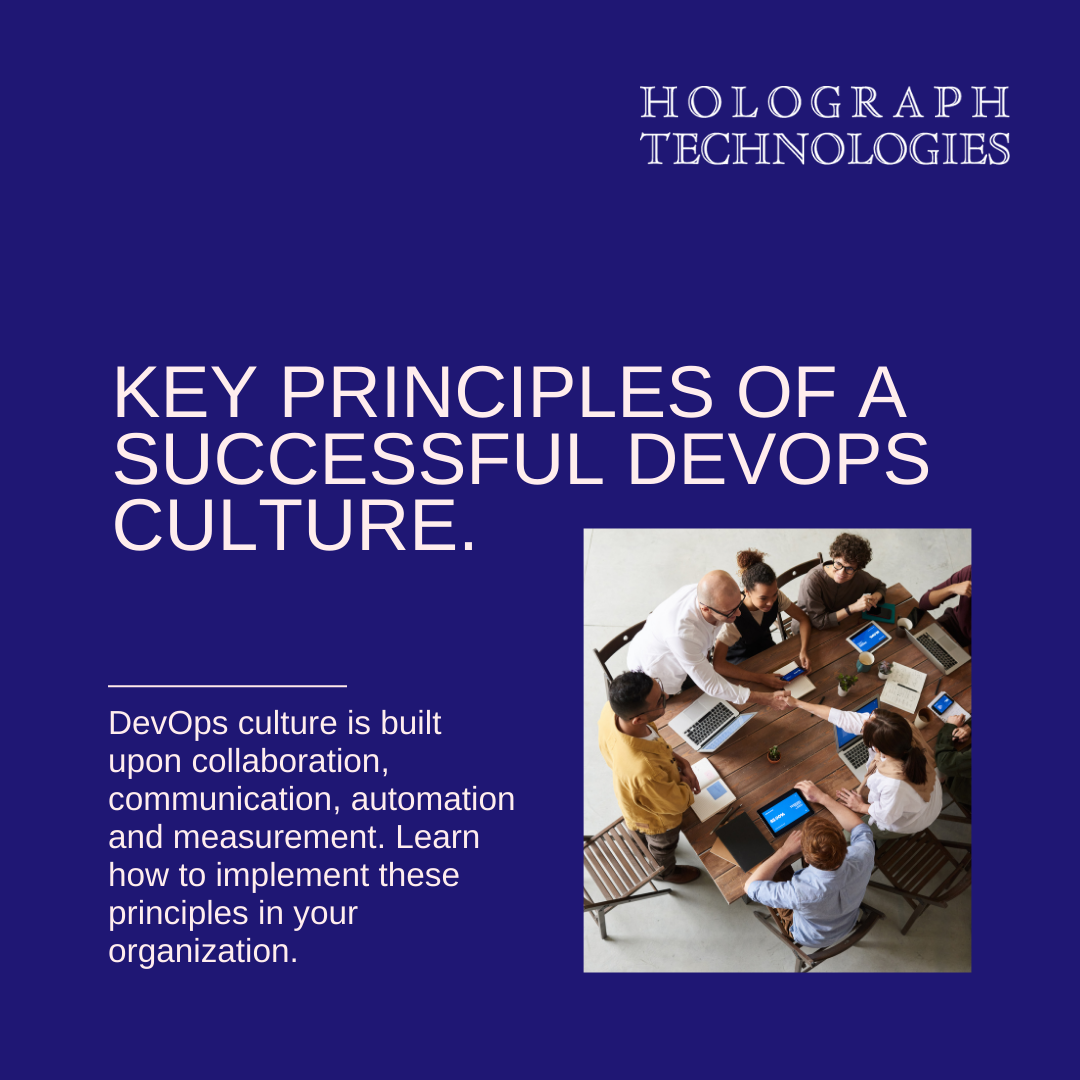In today’s fast-paced digital landscape, adopting a DevOps culture has become imperative for organizations aiming to deliver high-quality software efficiently. This article explores the fundamental principles that underpin a successful DevOps culture, with real-world examples showcasing how Holograph Technologies has helped clients transform their operations.
1. Collaboration and Communication:
DevOps is all about breaking down silos and fostering collaboration among development, operations, and quality assurance teams. Effective communication is the linchpin of this principle. Tools like Slack, Microsoft Teams, and Atlassian’s Confluence help facilitate real-time communication among teams.
We helped a global financial institution streamline communication between development and operations teams. By implementing Atlassian‘s tools, they reduced their software release cycle by 40%, resulting in a 25% increase in customer satisfaction.
2. Automation:
Automation is the backbone of DevOps. It helps in automating repetitive tasks, reducing human errors, and ensuring consistency in the software delivery pipeline. Tools like Jenkins, Ansible, and Docker are indispensable for automation.
Implement automated testing and continuous integration/continuous deployment (CI/CD) pipelines to accelerate software delivery.
3. Continuous Integration and Continuous Deployment (CI/CD):
CI/CD pipelines enable developers to integrate code changes into a shared repository multiple times a day, ensuring early bug detection and faster feature delivery.
According to a DORA (DevOps Research and Assessment) report, high-performing organizations deploy code 46 times more frequently than their lower-performing peers.
4. Monitoring and Feedback:
Constantly monitoring applications in production helps in identifying issues early and obtaining valuable user feedback.
A healthcare startup partnered with us to enhance their monitoring capabilities. By implementing proactive monitoring solutions, they reduced downtime by 30% and improved their mean time to recovery (MTTR) by 50%.
5. Security as Code:
Security should be integrated into every stage of the DevOps pipeline. Tools like SonarQube and Checkmarx help in scanning code for vulnerabilities.
Perform regular security audits and vulnerability assessments.
6. Culture of Learning:
In a successful DevOps culture, continuous learning and improvement are encouraged. This includes investing in employee training and promoting a culture of experimentation and innovation.
We provided training and mentorship to a leading e-commerce company. This empowered their development teams to adopt modern DevOps practices, resulting in a 20% increase in developer productivity.
Are you ready to embark on a DevOps transformation journey? Contact us today to discover how we can tailor our services to your organization’s specific needs. Let’s work together to achieve mutual success in the world of DevOps.




